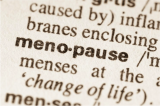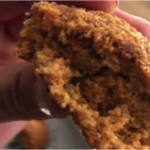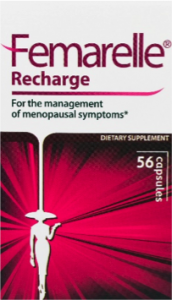
Menopausal women experience a hormonal imbalance which can lead to a number of different clinical syndromes and disorders (1). Menopause is characterized by a decrease in estrogen, which triggers uncomfortable symptoms such as hot flushes, night sweats, sleep disturbances, vaginal dryness (2), and an increased risk of osteoporosis (3).
Estrogen is a hormone that is naturally produced by your body and plays an important role in managing your reproductive system, protecting your bones, and helping your skin heal. Phytoestrogens on the other hand are produced by plants but are functionally similar to estrogen (2). When we eat foods with phytoestrogens, our bodies may respond as if our own estrogen were present.
Although phytoestrogens can easily be found in legumes, such as soybeans, chickpeas, alfalfa and red clover (4), most American women fail to consume these food items in adequate amounts. Meanwhile, Asian women incorporate higher amounts of phytoestrogen-rich foods into their diet and experience menopausal symptoms less frequently than American women (2,5). Could this absence of symptoms be a coincidence—or could this be due to their phytoestrogen-rich diet?
Various research studies have focused on phytoestrogens as a safe and effective treatment for menopausal symptoms. One study investigated the effects of Femarelle—a natural medication that contains a variety of phytoestrogens derived from tofu— on 631 Spanish menopausal or perimenopausal women. After 4 weeks, 80.7% of patients reported that their hot flushes were ‘better’ or ‘much better’. With that being said, the authors of this study concluded that treatment with Femarelle resulted in a “significant reduction in the number and intensity of hot flushes in postmenopausal women, especially in those with frequent symptoms, and these effects were observed within the first month of treatment,” (3).
Aside from this prospective study, several systematic reviews have also been published related to phytoestrogens and menopausal symptom relief—all of which found a reduction in the frequency or severity of hot flashes in menopausal women (2,5,6).
Although estrogen- and progestogen-based hormone therapy are commonly used as a first treatment option for menopause symptom relief, these treatments have numerous risks (3). According to the Women’s Health Initiative, hormone replacement therapy as a means for alleviating symptoms related
to menopause can increase the risk of stroke and venous thromboembolism, which can inadvertently lead to breast cancer or a heart attack (2).
Instead of hormone replacement therapy, menopausal symptom relief can be treated with a phytoestrogen-rich diet and/or dietary supplementation. If you would like to incorporate phytoestrogens into your diet, here are three Registered Dietitian-approved tofu recipes…
Food, Pleasure, and Health’s Baked Tofu Fries 
Wellness Simplified’s Crispy Tofu Meatballs 
The Conscious Dietitian’s Tofu Salad Bowl with Glory Bowl Dressing 
…OR if tofu doesn’t do it for you,
try Femarelle Recharge from epic4health.com.

References
(1) Rosic S, Kendic S, Rosic M. Phytoestrogens impact on menopausal symptomatology. Materia Socio-Medica. 2013; 25(2): 98.
(2) Chen M, Lin C, Liu C. Efficacy of phytoestrogens for menopausal symptoms: a meta-analysis and systematic review. Climacteric. 2015; 18(2): 260-269.
(3) Sánchez-Borrego R, Mendoza N, Llaneza P, Sánchez-Borrego R. A prospective study of DT56a (Femarelle®) for the treatment of menopause symptoms. Climacteric. 2015; 18(6): 813-816.
(4) Eden JA. Phytoestrogens for menopausal symptoms: A review. Maturitas. 2012; 72(2): 157-159.
(5) Lagari VS, Levis S. Phytoestrogens for menopausal bone loss and climacteric symptoms. The Journal of Steroid Biochemistry and Molecular Biology. 2014; 139: 294-301.
(6) Roberts H, Lethaby A. Phytoestrogens for menopausal vasomotor symptoms: A Cochrane review summary. Maturitas. 2014; 78(2): 79-81.
Written by Nicole Lindel, MS in Nutrition Education from Columbia University
